5 Best Practices for Financing Your Short-Term Rental Business
Discover the 5 best practices for financing your Short-Term Rental business to maximize profitability and minimize financial risks. Learn how to develop a financial plan, build a cash reserve, optimize revenue, track expenses, and leverage technology and automation.
May 12, 2023
Corey
.png)
Managing a Short-Term Rental property can be a lucrative venture for a property manager and short-term rental owners. Still, it requires diligent financial planning and management. Whether you're starting a new Short-Term vacation rental business or managing an existing vacation rental property, implementing best practices can help maximize profitability and minimize financial risks. In this article, we will explore five best practices to finance your Short-Term Rental effectively.
1. Develop a Comprehensive Financial Plan

A solid financial plan is the foundation of a successful Short-Term Rental business. Check local zoning laws and start creating a detailed budget encompassing all start-up costs, including property acquisition or mortgage payments, property taxes, insurance, maintenance, utilities, marketing expenses, and professional property management company fees.
Consider revenue projections based on occupancy, seasonal demand lodging tax, and rental rates in your city's zoning area. By using detailed information and mapping out a comprehensive rental business plan, you can make informed decisions and anticipate potential economic challenges.
2. Build a Cash Reserve

Short-term rental properties can face unexpected expenses and periods of low occupancy. To safeguard your vacation rental business against cash flow problems, building a cash reserve is essential. Aim to accumulate at least three to six months' worth of expenses in reserve funds.
This will provide your profitable business with a safety net to cover unforeseen costs, such as emergency repairs or periods with limited bookings. A healthy cash reserve ensures that your Short-Term Rental business remains financially stable even during challenging times.
3. Optimize Revenue Generation

Maximizing revenue is crucial for the success of your Short-Term Rental business venture. Utilize data-driven business strategies to optimize your vacation rental property and income potential:
- Competitive Rental Rates: Property managers should conduct market research to determine competitive rates in their area. Pricing your rental competitively can attract more guests and business travelers and increase occupancy rates.
- Desirable Amenities and Features: Enhance the appeal of your property by offering desirable amenities and features that align with your target market's preferences. This could include amenities like high-speed internet, smart home devices, or unique experiences.
- Effective Marketing Strategy and Advertising: Develop a strong online presence through listing platforms and social media. Utilize professional photography, compelling descriptions, and guest reviews to attract more bookings for your vacation properties.
- Strategic Rate Adjustments: Regularly analyze market trends and adjust your booking fees accordingly. Offer promotions during off-peak seasons or to fill last-minute vacancies.
4. Track and Optimize Expenses

Monitoring and optimizing expenses are key to maximizing profitability. Consider the following strategies:
- Vendor Negotiations: Negotiate favorable rates with vendors and suppliers. Focus on building strong relationships with them. Getting price quotes from different sources can be a way to lower costs without sacrificing quality.
- Energy-Efficient Practices: Implement energy-efficient measures such as LED lighting, smart thermostats, and water-saving fixtures to reduce utility expenses.
- Cost-Effective Maintenance: Prioritize regular maintenance to prevent major repair expenses. Promptly address any issues to avoid costly repairs down the line.
- Eliminate Unnecessary Expenses: Evaluate all property upgrades and amenities to ensure they align with guest preferences and generate sufficient return on investment. Avoid unnecessary expenses that don't contribute significantly to guest satisfaction or revenue.
5. Leverage Technology and Automation

In the short-term rental industry, technology and automation can significantly streamline your business entity. Short-Term Rental business operation technology includes:
- Property Management Software: Property management companies and owners should invest in reliable property management software that centralizes bookings, automates communication with guests, and tracks financial transactions. These tools will simplify administrative tasks and enhance efficiency.
- Fintech: Trust accounting is hard, but it certainly will provide value when you get it right. Companies like Clearing are taking all the hard work out of your hands. Create zero-balance accounts, reconcile transactions, automate categorization, make bulk payments, and integrate with the rest of your tech stack to bring efficiencies beyond measure.
- Smart Home Technology: Install smart thermostats, automated lighting systems, and keyless entry systems. These technologies improve energy efficiency, enhance security, and provide a seamless guest experience.
- Data Analytics: Utilize data analytic tools to gain insights into your Short-Term Rental business. Analyze booking patterns, guest feedback, and financial metrics to identify trends, make data-driven decisions, and continually optimize your operations.
In conclusion, financing a Short-Term Rental property requires a data-driven approach and meticulous financial management. By developing a comprehensive financial plan, building a cash reserve, optimizing revenue generation, tracking and optimizing expenses, and leveraging technology and automation, you can maximize profitability and mitigate financial risks. Remember to adapt these best practices to your specific market and property to achieve long-term financial success with your Short-Term vacation rentals.
If you are working through the fifth suggestion and are ready to automate your trust accounting processes using technology, Clearing can help!
Our fintech solution, that is tailored for Short-Term Rentals, will save you time and money when it comes to year-end financial reporting, so don’t wait! Get started today by scheduling a demo and learning more about our technology!
Clearing is a Financial Technology Company, not a bank.

.png)




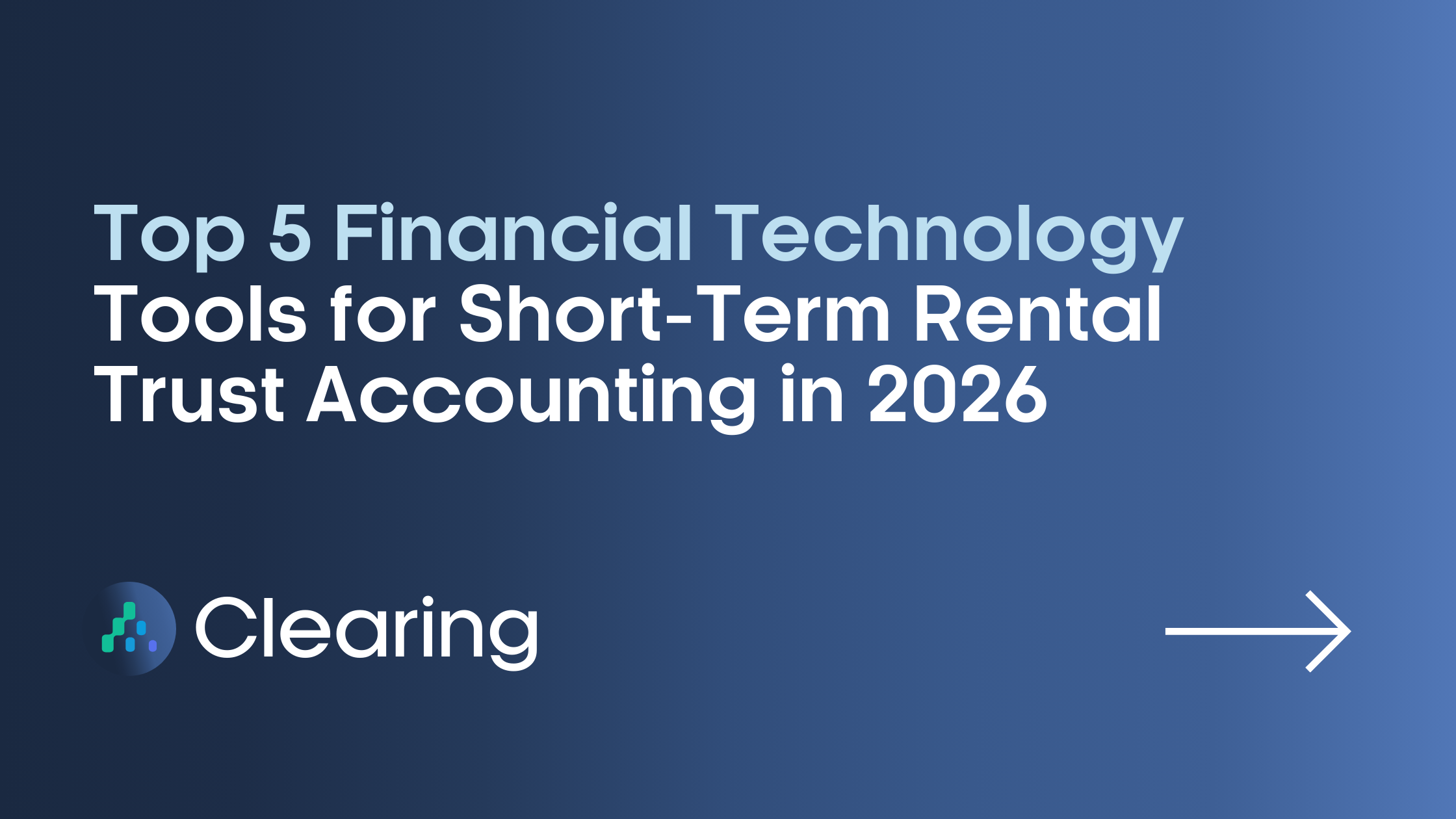

.png)
.png)
.png)
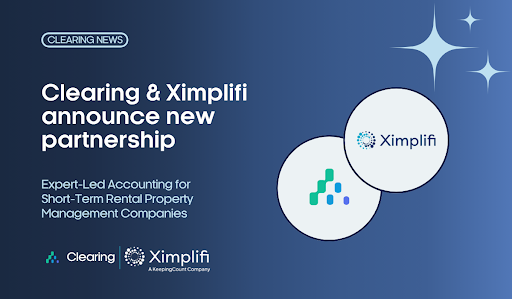
.png)
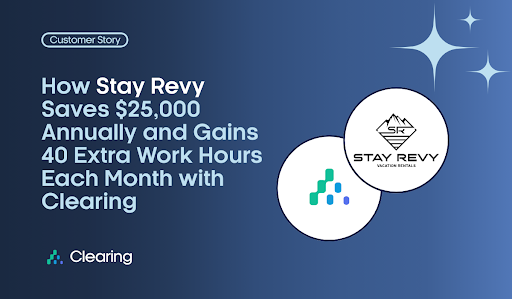
.png)
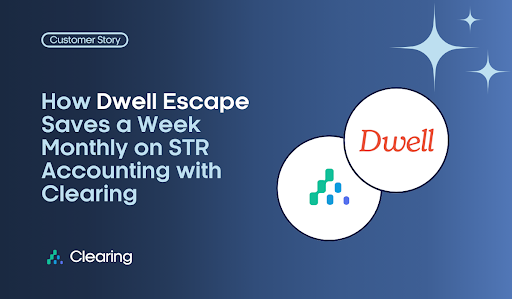
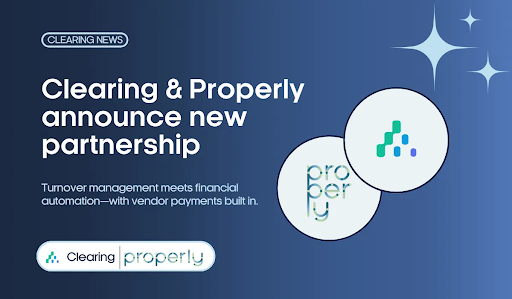
.png)
.png)
.png)
%20(1).png)
%20(1).png)
%20(1).png)
.png)
%20(2).png)
%20(1).png)
%20(1).png)
.png)

.png)
.png)
.png)
%20(1).png)
.png)
.png)
.png)
.png)
.png)
.png)
.png)
%20(1).png)
.png)
.png)
.png)
%20(1).png)
%20(1).png)
%20(1).png)








.jpg)
%20(1).png)
%20(1).png)
%20(2).png)
%20(1).png)

%20(1).png)
%20(1).png)
%20(1).png)



%20(1).png)
%20(1).png)
%20(1).png)
%20(1).png)
%20(1).png)


%20(1).png)
%20(1).png)
%20(1).png)
%20(2).png)
%20(2).png)



%20(2).png)


%20(2).png)
%20(1).png)
.png)


%20(2).png)
%20(2).png)

.jpg)
.png)
.png)
.png)



.png)